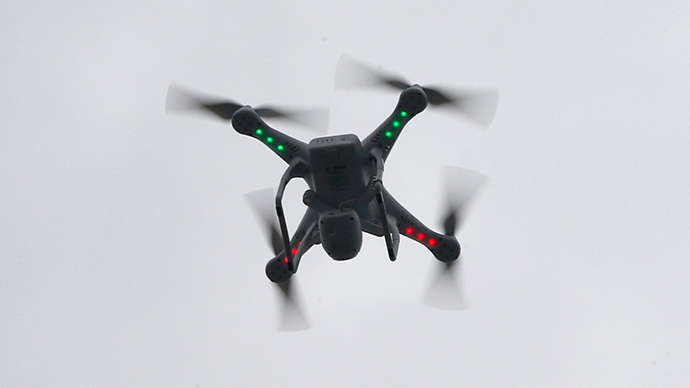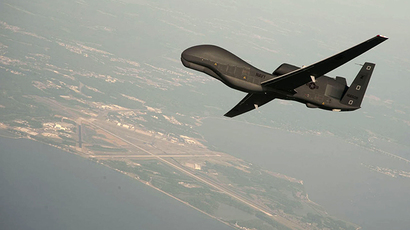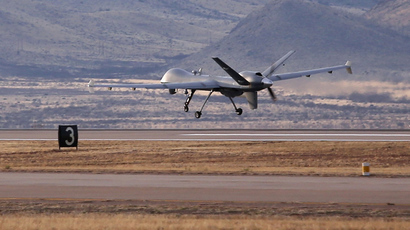California governor vetoes bill requiring warrants for police drones

Despite widely clearing both the state’s Senate and Assembly, California Governor Jerry Brown shot down a bill on Sunday that would have imposed restrictions on when law enforcement agencies can use drones for surveillance.
Brown, a Democrat, said in a statement over the weekend that he was vetoing the drone accountability act that, had it been signed into law, would require police agencies to obtain a warrant before using an unmanned vehicle, or drone, for aerial surveillance.
"There are undoubtedly circumstances where a warrant is appropriate. The bill's exceptions, however, appear to be too narrowand could impose requirements beyond what is required by either the Fourth Amendment or the privacy provisions in the California Constitution," Brown said on Sunday.
One of the bill's authors, Republican Assemblyman Jeff Gorell, said in a tweet on Sunday that "The era of govt. surveillance continues” after the governor’s veto was announced.
It's very disappointing Gov. Brown vetoed #AB1327 - The #Drone Privacy Protection Act. The era of govt. surveillance continues. #nsa#irs
— Jeff Gorell (@JeffGorell) September 29, 2014
As RT reported previously, the California State Senate voted 25-8 last month in favor of the bill, AB 1327, after it cleared the Assembly in January by a margin of 59-5.
"The potential for abuse of drones is high and we need to be vigilant to ensure our Constitutional rights are protected," bill co-author and Democratic State Senator Ted Lieu told Reuters earlier this year.
“Drones are going to be extremely important for hot pursuit, which is allowed in this bill, for search and rescue and, when you get a warrant, for continuous surveillance” of a location, Assemblyman Bill Quirk (D-Hayward), another co-author, said similarly.
According to Brown, however, the efforts of the bill’s creators to try and curb potential drone abuses clash with what the California governor believes to be the rights of law enforcement officers.

Had Gov. Brown signed his name to the bill, it would have required a warrant for drone surveillance missions except in instances of environmental emergencies, such as oil or chemical spills, when aerial vehicles could be deployed at the drop of a hat. Additionally, the data recorded by the drones would in most instances have to be destroyed within one year.
"It's disappointing that the governor decided to side with law enforcement in this case over the privacy interests of California,” Assemblyman Gorell told the Los Angeles Times.
Earlier this month, a group of law professors wrote Gov. Brown’s office urging him to sign the bill into law because, according to the educators, failing to do as much may have great consequences.
"Misuse of drones may chill First Amendment activity and lead to high-tech racial profiling," the letter said in part. Separately, activists gathered in downtown LA last month to rally against the city’s police department’s plans to begin using drones of their own.
The National Conference of State Legislatures says that 20 states across the US have enacted laws pertaining to the use of drones by law enforcement agencies, and President Barack Obama is reportedly preparing an executive order that will require federal agencies that use unmanned aerial vehicles to disclose more details about how they are used.













